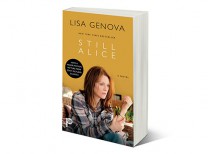Benjamin Franklin said that nothing in this world is certain except death and taxes. Since some people do not pay income taxes, death has become the only certainty. No one gets out of this world alive. Given that inevitability, you would think that all of us would prepare for dying. Unfortunately, that is far from true.
Katy Butler is a journalist who experienced the horrific deaths of her parents. Her father was a retired university professor who had a major stoke at age 78. He was left largely disabled. An inguinal hernia was diagnosed and the doctors recommended a repair. At his preoperative visit a slow pulse rate was discovered and, even though he had no symptoms, a permanent pacemaker was inserted. Deprived of a cardiac death, he developed dementia over the next decade. His last 10 years were miserable and took away the quality of life for his wife, Katy’s mother, who died unhappy and unfulfilled soon after her husband. Katy Butler chronicles this story and comments on death and the medical profession in her first book, Knocking on Heaven’s Door.
After the deaths of her parents and the success of her first book, Katy Butler began to focus her advocacy and writing on how we die. The Art of Dying Well: A Practical Guide to a Good End of Life is an elegant review of the process of preparing for death by living well and developing skills as mature adults. It is never too early to think about and prepare for our mortality. The first chapters cover various attitudes and skills under the titles of Resilience, Slowing Down, Adaptation, and Awareness of Mortality. They help prepare one for approaching the end of life with equanimity.
Butler then devotes a chapter to avoiding the interventions of the medical system that often lead to a poor death. Long ago, a medical ethicist, John Fletcher, introduced me to the concept of being caught in “medical captivity.” I think of that every time I walk through skilled nursing facilities. Fletcher also described Americans as the most death denying culture to ever exist.
The book completes its journey with two wonderful chapters, Preparing for a Good Death and Active Dying. The conclusion is Toward a New Art of Dying. This material is so well written and insightful that the book should be read as a core text by anyone working in hospice.
Cicely Saunders founded the modern hospice movement in England; Elizabeth Kubler-Ross wrote On Death and Dying which I was fortunate to have read as a medical student in the early 1970s. These two women made me a hospice-oriented physician my entire career. I regret to say that 10 years in the Coachella Valley has taught me that people here avoid the topic of death more than most. This avoidance is dangerous since excessive treatment at the end of life too often results in a miserable death experience. The Art of Dying Well should be on the list for local book clubs and be widely read to help our population become better prepared for the inevitable.
Dr. Scherger is an Eisenhower Health Primary Care 365 physician, a core faculty member of the Eisenhower Family Medicine Residency Program, and a team physician for Reliance Hospice. His third edition book Lean and Fit: A Doctor’s Journey to Healthy Nutrition and Greater Wellness is available at Amazon.com.


















































Comments (0)